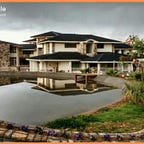How Do We Teach Civics in Such a Polarized Political Environment
America’s political polarization makes teaching civics want navigating a minefield these days. Wary of disconcerting parents or students, instructors are also trying more toward the elections of the nineteenth century than those of the twenty-first.
While historical events are essential to a child’s understanding of recent governance, it’s equally necessary that civics or history lecturers embrace modern politics in their lecture rooms. But how can we try this in such polarized times?
Reinforce the importance of civics education
In a 2012 Article for the American Bar Association Review, Author Mark explained that people between 18–25 age vary have considerably lower rates of political participation than their parents or grandparents. And that they have large gaps in content information surrounding civics.
While the Nation’s report shows a rise in civics understanding since its assessments began in 1998, it shows no positive modification since its 2010 assessment. Currently, solely 23 % of students demonstrate basic proficiency in civics and government education. This suggests important numbers of scholars leave high schools unprepared to navigate the complicated political space of adulthood.
Use modern examples to bring history to life
Historical examples will facilitate teaching students civics; it’s rather more necessary to use immediate current and even native, political issues to assist students in applying their learning regarding government to their own lives. Giving students real-world examples and problems during a civics arena will facilitate attaching meaning to the concepts they’re learning.
Still, this may cause potential landmines: Students disagree on politics as a result of the modern political surroundings is so divisive, whereas instructors concern about student conflict, parental involvement, or maybe district censorship. Arguments will shut down classes and inhibit learning, whereas common political positions will marginalize students who hold unpopular views.
No matter, however, “like-minded” a school’s student body could appear, civics instructors should work hard to handle polarization and account for opposing views.
Encourage ‘political friendship.’
Southern Poverty Law Center started an education group known as Teaching Tolerance to deal with the challenge that “like-mindedness” will cause isolation that breeds close-mindedness. Similar thinking also erodes what SPLC calls “political friendship” — a sincere belief that those who hold different beliefs are still essentially sensible.
What to do, then? Consider using modern civics stories and inspiring students to observe radical empathy, that gets to the heart of differences of opinion whereas working against decision making individuals as good or dangerous. As children learn the values and principles that drive different populations, they’ll increasingly differentiate people from concepts.
Build argumentation skills
This doesn’t come without effort. As Spiderman and Voltaire educated us, with great power comes great responsibility. In their piece “Teaching social science in a Time of Partisan Polarization,” Peter Levine and Kei Kawashima-Ginsberg perceive that instructors should be “even-handed, sensitive to the various backgrounds of their students, well educated and ready.”
They encourage educators to assist guide students through these polarized discussions by preparing them with sensible argumentation skills, using evidence and rhetorical awareness. Teaching students regarding confirmation bias and, therefore, the basic needs of argument will facilitate them to intellectualize what may be entirely an emotional issue for them.
Support civic participation
These styles of discussions aren’t restricted to a civics or social studies schoolroom either. As students see civic-minded issues and queries in their alternative courses, from science to mathematics to music or arts, they’ll begin to acknowledge the importance of civic participation and the way it should directly affect their faculties, lecturers, or classmates.
Several boarding schools, more info is available on, including Ecole Globale, do not only teach Mathematics and Physics that involves cumbersome equations but also encourage their students to take an interest in other subjects like civics.
While wading into discussions of recent politics is often scary territory, instructors ought to acknowledge that doing this carefully and with respect for the beliefs and capabilities of their students can pay off in their future participation in democracy. On the way, this work will facilitate to enhance the political relationship and build collaborators instead of name-callers.
Matt Mahan, James Kilroe, Lisa Kay Solomon, Ethan Zuckerman, Lily Eskelsen García, Willow Brugh, Christopher Chavez, The Aspen Institute, Joe Brooks, Sarah Anderson
